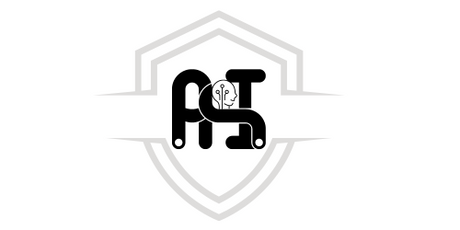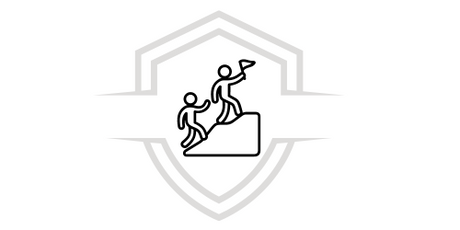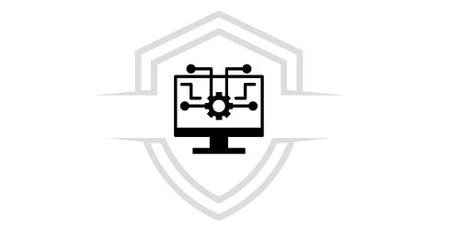Would you like to strengthen teamwork and form efficient, high-performance teams? This is possible by developing effective communication skills.
Most of the time we tend to think that to have good effective communication it is necessary to develop certain skills to transform our spaces and have a better influence on our work teams.
Learning certain communication skills can help you perform more productively and lead you to the success you desire in your workplace.
What is Effective Communication?
This concept is basically based on how we understand emotions and the interaction between the information that is chosen as a catalyst. It is having the ability to listen and understand everything about the information that is received, in short, we have to understand ourselves to be understood.
20% EXTRA DISCOUNT
Get started today and get fully certified in Effective Communication with our course
- 100% online at your own pace
- practical exercises
- Lifetime Access
- certified endorsed
Apply the coupon [DARE] and get an extra 20% discount for only 100 students. Click the button and join!
Benefits vs. Disadvantages
Some of the benefits that we could find in the transition from the use of effective communication versus the disadvantages of not applying it are the following:
Benefits:
- Focus the team on objectives
- Achieve your goals more easily and in less time
- It boosts team morale to know that everyone is working on the same page.
- Distribute resources effectively
- Promotes teamwork
- Promotes conflict resolution
- Avoid misunderstandings and possible fissures
Disadvantages:
- It leads to internal conflicts
- Demotivation
- Negative work environment
- Poor performance
- Low probability of success in objectives
Characteristics of (Effective) Verbal Communication
1. Define the purpose of the message
Before engaging in any communication, whether by phone, email, in person, etc., you need to take some time to identify the purpose of the communication.
Once you have it clear, establish a communication strategy. Find an appropriate order of words to facilitate understanding of the message.
This will help you avoid distracting the team's attention with rambling words or phrases.
2. Active listening
There are times when we only hear what we think is important or essential in a message given to us by another person. We are already mentally preparing the response we will give before the other person has finished speaking.
There are even times when we are in such a hurry to respond that we interrupt the message to give our response without having grasped the essence of it all.
In a rush, you may end up overlooking parts of the message that could be useful in resolving any team problem or situation.
The reality is that if we take the time to listen to our interlocutor, respond calmly and with all the information at our disposal, and very importantly, we will have greater control over the situation.
3. Put yourself in the other person's shoes
It is important to understand that situations are not one way or another. Everything will always depend on the perspective from which you or the other person look at it. It also depends on your previous learning or experiences.
This is as simple as the fact that each of us can be faced with the same situation and experience it in very different ways, but why this happens depends precisely on our previous experiences and learning.
Remember that if you don't understand another person's point of view, it will be difficult for them to understand yours.
4. Develop Assertive Communication
On the other hand, we have assertive communication , which works hand in hand with effective communication. This is based on the ability to say what we think while respecting others. The bases for putting assertive communication into practice are:
- Perform active listening.
- Remember that you are just as important as everyone else, expressing your feelings and opinions without holding back.
- Always speak with respect.
- Respect and do not limit the opinions of others.
- Accept criticism and reflect on the point of view of others.
5. Express yourself with your tone of voice and your body
The way you convey a message is even more important than the words you use. If you use an inappropriate tone of voice and your gestures don't help either, you may have thought up the best phrase in the world but no one will believe what you say.
The best thing you can do to ensure that your gestures and tone of voice convey what you want to express is to identify with the message. If you yourself do not believe what you are saying, it will be difficult for you to get others to do the same.
Your message should always be in line with your principles and values. This way, you will always have the right gesture and tone for what you are expressing because you will feel comfortable with it.
FREE DOWNLOAD
Learn about the most effective techniques to generate positive emotions and discover your strengths and virtues. Download this guide completely FREE.
6. Be Brief and Clear in Your Presentation
If you overextend your message with embellishments and ramblings, the essence of your message will be lost and the impact you want to have on the other person will dissolve as you add empty words.
Always get to the point, so that the receiver clearly understands the message.
7. Give and Ask for Feedback
Feedback is one of the strategies that gives very good results. With it, you can use the vision and experience of the rest of the team to improve each one's work, increasing everyone's knowledge and helping to achieve objectives more easily.
It is helpful to receive feedback from more than one person to confirm the level of accuracy.
When giving feedback, it is essential to highlight everything that has been done well and what needs to be improved or changed. I recommend that you make it very clear what exactly you think is wrong, why you think it is so, and of course, provide a solution.
By doing this, you will let your team know that you not only see the mistakes, but that you also work on providing solutions to improve the group's performance.
8. Confirm that your message has been received
If we do not make sure that the message has arrived correctly, there is a possibility that parts of it have been lost along the way.
If there is a part of the message that is important, highlight it. Don't assume that the other person will understand the message exactly as you have it in your head. Therefore, it is necessary to confirm that your message has been received and understood correctly.
Otherwise, when you are the one receiving the information, make sure that the person transmitting the message gives you all the necessary information and that what you have received is what they intended to convey to you.
9. Define the Communication Channel
Make it clear which communications should be made through various channels such as chat, email, video calls, etc., and which can wait until the next meeting.
Sometimes we can resolve some issues via video call without having to call a face-to-face meeting. Using these channels favors productivity and time management.
10. Communicate Important Changes in Time
If any major changes arise in the project, it is a priority that you communicate them. This should be communicated as soon as possible to the rest of the team.
You can be sure that they will thank you for it, because there is nothing more uncomfortable than realizing that you have been working in vain.
What is the importance of all this?
Below we will mention the great importance of effective communication:
- Build and strengthen good working relationships.
- It helps to release tension caused by communication failures.
- It helps to bring teams together, reducing human error and frustration among collaborators.
- Establishes a space and environment for innovation.
- It enables dialogue between work teams and management, breaking down barriers to communicate innovative ideas that drive company development.
- Provides good management practices to increase performance.
Effective communication gives you tools to know how to work and collaborate with your colleagues and make decisions in conflict situations.
Likewise, developing effective communication skills helps you to better manage larger, high-value work teams.
To develop these skills in a professional manner, we offer you our Effective Communication course: Learning to improve verbal communication
Courses that may interest you
Do you want to acquire more skills to improve Verbal Communication at work? We recommend our courses on Wellbeing and Positive Psychology, Time Management and Productivity and Assertive Communication.















